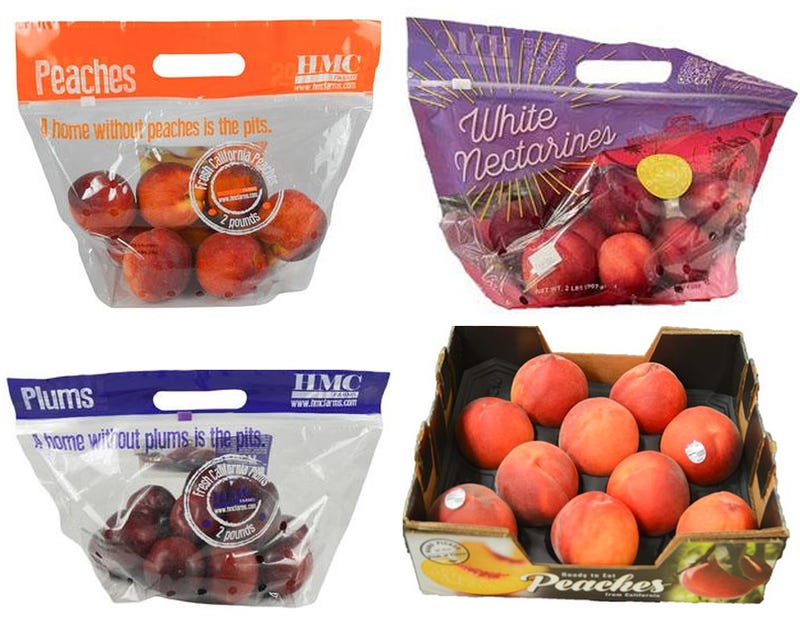
Federal officials have issued a food alert about peaches, plums and nectarines, sold over the last two years, that are linked to a deadly bacteria outbreak.
At least 11 people in seven states have fallen ill after consuming the fruit, and one person has died, according to the U.S. Centers for Disease Control and Prevention.
"Epidemiologic and laboratory data show that HMC Farms peaches, nectarines, and plums may be contaminated with Listeria and are making people sick," the CDC said in a statement.
As a result, HMC Farms is voluntarily recalling peaches, plums and nectarines sold in retail stores nationwide between May 1 and November 15, 2022 and between May 1 and November 15, 2023, because the fruit has the potential to be contaminated with Listeria monocytogenes.
Of those sickened in the outbreak, three cases were reported in both California and Florida, while one case each was reported in Colorado, Illinois, Kansas, Michigan and Ohio.
One death was reported in California. Additionally, one person got sick during their pregnancy, resulting in preterm labor; officials did not identify the state.
Sick people range in age from 30 to 80 years.
Health officials interviewed the patients about the foods they ate in the month before they got sick. Of the seven people interviewed, all reported eating peaches, plums or nectarines.
"CDC conducted a case-case analysis... [which] showed that people in this outbreak were 18 times more likely to eat peaches, nectarines, or plums," the CDC said. "This suggests that peaches, nectarines, and plums are a likely source of this outbreak."
Additionally, whole genome sequencing showed that bacteria from sick people's samples were closely related genetically, suggesting that people in the outbreak got sick from the same food.
On October 23, the Food and Drug Administration collected a sample of HMC Farms peaches for testing and found Listeria in it. On November 7, whole genome sequencing showed that samples were a positive match to the outbreak strain of Listeria.
"This means that people likely got sick from eating these peaches," the CDC said.
The recalled fruit was distributed nationwide and sold at retail stores in bags or as individual pieces of fruit bearing PLU stickers, under multiple brand names, including HMC Farms and Signature Farms. However, the recalled fruit is no longer available for sale and any previously purchased fruit should be past shelf life.
Consumers may have frozen the fruit at home for later use. Consumers are urged to check their freezers for the recalled fruit, not consume it, and discard it.
The CDC noted that the true number of sick people in this outbreak is likely higher than the number reported, and the outbreak may not be limited to the states with known illnesses. This is because some people recover without medical care and are not tested for listeria. In addition, recent illnesses may not yet be reported as it usually takes three to four weeks to determine if a sick person is part of an outbreak.
Listeria monocytogenes is an organism that can cause listeriosis -- a serious and sometimes fatal infections in young children, frail or elderly people, and others with weakened immune systems. Although healthy individuals may suffer only short-term symptoms, listeria infection can cause miscarriages and stillbirths among pregnant women.
Symptoms of Listeriosis usually start within two weeks after eating food contaminated with Listeria, but may start as early as the same day or as late as 10 weeks after. Mild symptoms may include a fever, muscle aches, nausea, tiredness, vomiting, and diarrhea. If the more severe form of listeriosis develops, symptoms may include headache, stiff neck, confusion, loss of balance, and convulsions.
Call your healthcare provider right away if you have symptoms of a Listeria infection.
The FDA's investigation is ongoing to determine the source of contamination and if additional products are linked to illness.
